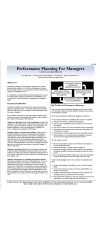Assertiveness In Theory and In Practice
A Limitation On Assertiveness Effectiveness
There’s no question that being assertive is a better way to communicate your needs and wants, at least compared to being aggressive, or just accepting situations that cause you distress. But the problem is that there’s a huge difference between how assertiveness works in theory and in practice, so you should be aware of some points.
People Don’t Necessarily Respond The Way They Should
The underlying premise for communicating assertiveness is that it will “work better”, and in theory that’s how it should work. With someone who also understands and communicates well, and who buys in to assertive methods, it’s a superior way to sort things out, because both people are playing by the same rules.
The problem is that people don’t respond to assertive communication the way the books tell us they should. There is no guarantee that with any specific individual using these techniques will get you further than more passive or aggressive means. That’s not to say you shouldn’t try, even for your own sense of self-respect.
The Formulaic Communication Pattern
Beware of starting to sound like you are reading from an assertiveness script. That’s one problem with the three steps of assertive communication — if you follow them, you may start to sound kind of “therapeutic”, or actually, fake, and people can interpret that as being manipulative, which is exactly what you do NOT want.






